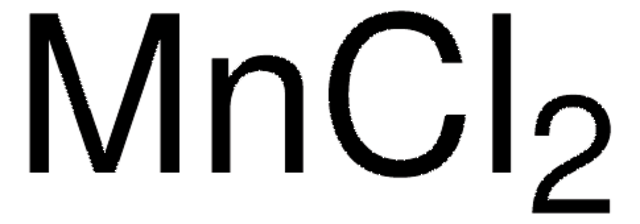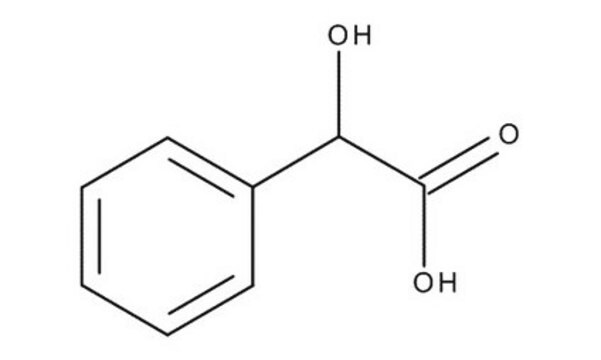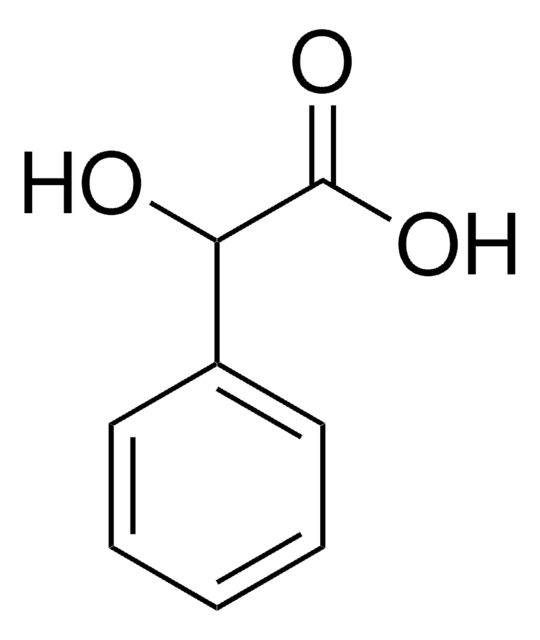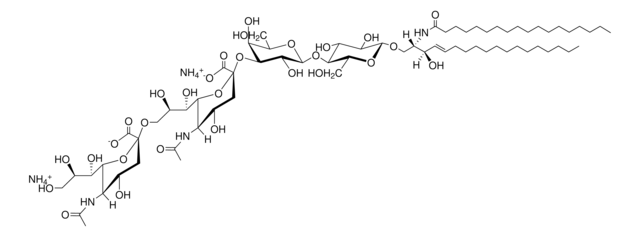48795
Manganese(II) chloride 0.1 M solution
Synonym(s):
Manganese(II) chloride solution, Additive Screening Solution 26/Kit-No 78374
Sign Into View Organizational & Contract Pricing
All Photos(1)
About This Item
Linear Formula:
MnCl2
CAS Number:
Molecular Weight:
125.84
MDL number:
UNSPSC Code:
12352200
PubChem Substance ID:
NACRES:
NA.32
Recommended Products
Quality Level
density
1.01 g/mL at 20 °C
storage temp.
2-8°C
SMILES string
Cl[Mn]Cl
InChI
1S/2ClH.Mn/h2*1H;/q;;+2/p-2
InChI key
GLFNIEUTAYBVOC-UHFFFAOYSA-L
Looking for similar products? Visit Product Comparison Guide
Application
Manganese(II) chloride 0.1 M solution has been used:
- as a component of reprogramming media for culturing mouse neonatal tail-tip fibroblasts
- in the mutagenesis of WT clone by error-prone polymerase chain reaction (PCR)
- as a standard in isothermal titration calorimetry and differential scanning calorimetry
Signal Word
Warning
Hazard Statements
Precautionary Statements
Hazard Classifications
Eye Irrit. 2
Storage Class Code
12 - Non Combustible Liquids
WGK
WGK 1
Flash Point(F)
Not applicable
Flash Point(C)
Not applicable
Personal Protective Equipment
dust mask type N95 (US), Eyeshields, Gloves
Choose from one of the most recent versions:
Already Own This Product?
Find documentation for the products that you have recently purchased in the Document Library.
Customers Also Viewed
Robert W Siegel
Methods in molecular biology (Clifton, N.J.), 504, 351-383 (2009-01-23)
Many biosensors depend on molecular recognition reagents to achieve highly sensitive and specific detection levels of an analyte of interest. Although new and improved detection platforms continue to be developed, improvements in the affinity and specificity of the molecular recognition
Barry J Bowman et al.
Eukaryotic cell, 11(11), 1362-1370 (2012-09-18)
The pmr gene is predicted to encode a Ca(2+)-ATPase in the secretory pathway. We examined two strains of Neurospora crassa that lacked PMR: the Δpmr strain, in which pmr was completely deleted, and pmr(RIP), in which the gene was extensively
Jerome A Roth et al.
Neurotoxicology, 35, 121-128 (2013-01-15)
Chronic exposure to Mn results in the development of a neurological disorder known as manganism characterized by neurological deficits resembling that seen in Parkinsonism. Although dopaminergic neurons within the nigrostriatal pathway appear intact, Mn-induced irregularities in DA transmission have been
A G Kanthasamy et al.
Toxicology letters, 214(3), 288-295 (2012-09-22)
The role of normal cellular prion protein (PrP) remains to be fully elucidated; however, the protein is crucial for the infection and progression of prion diseases. Recent evidence indicates that PrP is a metalloprotein since the octapeptide repeat sequences in
Xiao-fei Liu et al.
Biological trace element research, 151(2), 217-224 (2012-11-30)
Manganese (Mn) is an essential element required for normal development and reproduction. However, little is known about the reproductive toxicity of Mn in birds. To investigate the Mn-induced toxicity on testicular trace element levels and crucial hormonal parameters on male
Our team of scientists has experience in all areas of research including Life Science, Material Science, Chemical Synthesis, Chromatography, Analytical and many others.
Contact Technical Service







